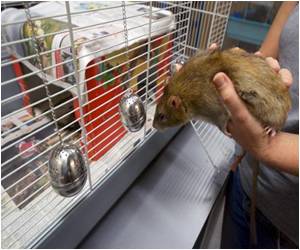The findings are important to understand human reasoning especially in older adults, as ageing reduces ability to maintain information about unobserved events.

The recent study draws from long-understood ideas that when a rat (or dog or pigeon) observes one event followed by another, such as a tone followed by food, it forms an association between the events. After the association is formed, whenever the rat hears the tone, it expects food to follow.
"What I have shown in my research is that rats not only acquire these types of associations between two events, they can form a causal link between them as well," said Dr. Aaron Blaisdell, lead researcher from University of California, Los Angeles. The rat appears to believe that the tone causes the food, according to the findings presented recently at the Congress of Neurological Surgeons meet.
The researchers found that once rats observe two events together, it not only forms an association but also an expectation. For example, if two lights occur at the same time, a rat will expect one light to occur whenever the other one does.
But even more remarkably, if researchers cover one of the lights so that the rat cannot see it and then the researchers present the other light, the rats take actions as though the hidden light might be on.
"They maintain an image or expectation that the light is present even though they can’t see it," Blaisdell said.
Advertisement
Source-IANS








